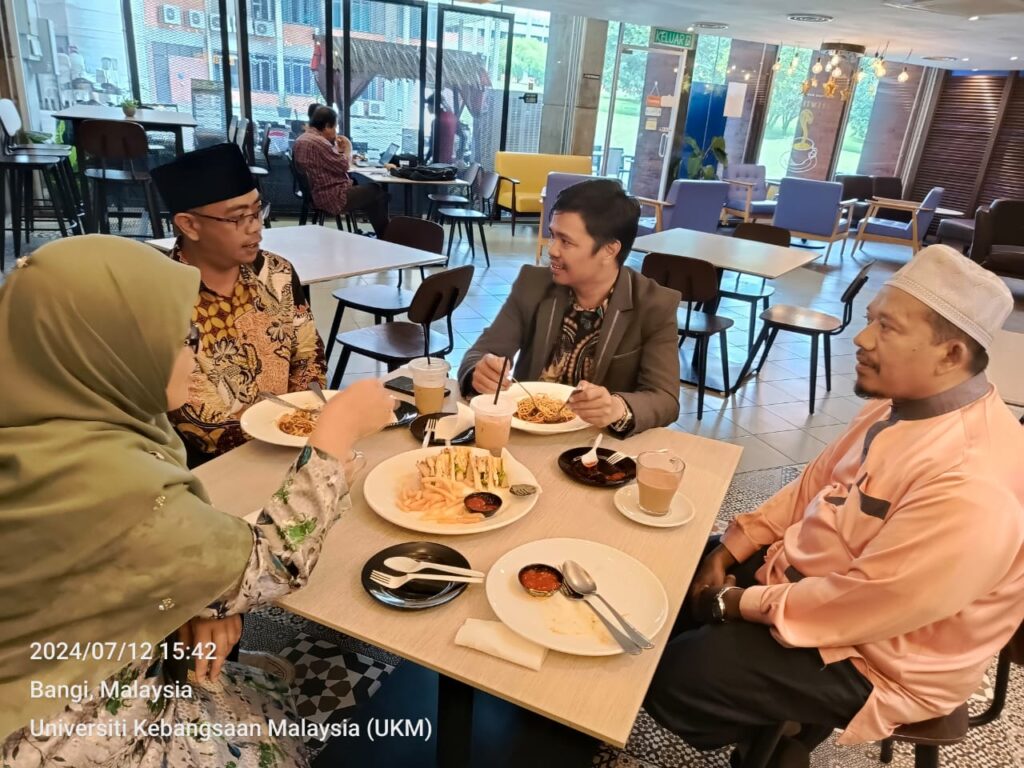
Sukabumi – On Friday, July 13, 2024, a delegation from Institut KH. Ahmad Sanusi (INKHAS) Sukabumi conducted an official visit to Universiti Kebangsaan Malaysia (UKM). The delegation consisted of Dr. Jasmansyah, M.Pd (Deputy Director of Postgraduate Programs at INKHAS) and Nandang Albian, SH., MH. (Head of Public Relations and Collaboration Bureau). The meeting, held at the Faculty of Islamic Studies campus at UKM, was attended by faculty representatives Dr. Abdull Rahman Mahmood and Dr. Wan Fariza Alyati Wan Zakaria.
The visit aimed to explore potential collaborations in the areas of the Tri Dharma of higher education, which include education, research, and community service. The discussions focused on student and faculty exchange programs, collaborative research, visiting professors, and various other academic initiatives. One of the main proposed agendas is the implementation of a Joint International Seminar between INKHAS Sukabumi and UKM in the near future.

Dr. Wan Fariza Alyati expressed UKM’s appreciation and enthusiasm for the planned collaboration, hoping it could soon be realized in the form of a Letter of Intent (LoI) and Memorandum of Understanding (MoU). “UKM is very open to collaborating with international campuses to complement each other and synergize in both academic and non-academic fields,” she said. Dr. Jasmansyah, M.Pd also expressed his pride in being at a world-renowned campus like UKM. “We are very grateful to be warmly welcomed by UKM, and we see many opportunities for collaboration in various fields,” he stated.
International collaborations like this are considered essential for higher education institutions in Indonesia. Forming partnerships with foreign educational institutions brings numerous significant benefits, ranging from academic development to enhancing the global achievements of universities in the country.
International collaboration opens access to a wider range of resources and opportunities. Exchange programs for students and faculty, for instance, allow students to experience different cultures and learning methods, enriching their academic background and interpersonal skills. This collaboration also creates an inclusive and multicultural learning environment.
Moreover, collaboration with international institutions can improve the quality of research. Universities can conduct cross-border research that provides a global perspective on critical issues. The amalgamation of knowledge and expertise from multiple institutions can yield innovative solutions and create opportunities for publication in prestigious international journals.
International collaboration also plays a crucial role in enhancing the competitiveness of universities in the global higher education market. By connecting to a broader academic network, universities can attract international students, faculty, and researchers, thereby increasing their global reputation. This increased attractiveness positively impacts the academic quality and economic standing of the university.
Equally important, international collaboration fosters the exchange of ideas and innovation. Through international conferences, joint workshops, and collaborative academic programs, universities can continually update their curricula in line with the latest developments in science and technology.
In this era of globalization, forming collaborations with foreign institutions is not just an option but a necessity for universities in Indonesia. Thus, universities can become centers of academic excellence capable of competing globally, bringing extensive benefits to students, researchers, and society as a whole.

